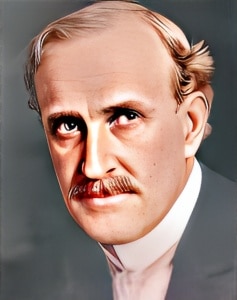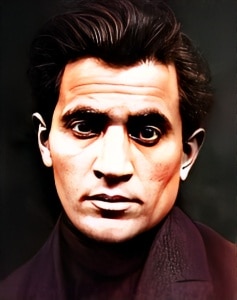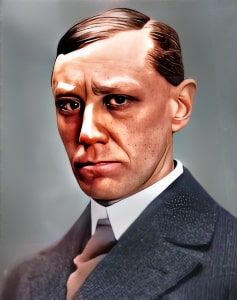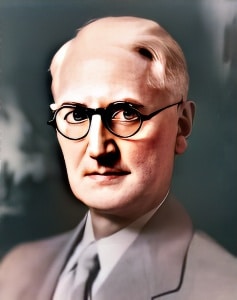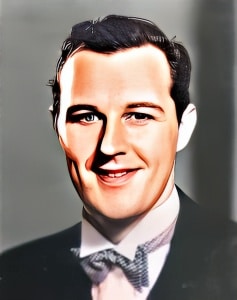 Francis Xavier Bushman Jr., born on January 10, 1903, in Baltimore, Maryland, was an American actor who made a name for himself in the ever-evolving landscape of early Hollywood.
Francis Xavier Bushman Jr., born on January 10, 1903, in Baltimore, Maryland, was an American actor who made a name for himself in the ever-evolving landscape of early Hollywood.
He was the son of Francis X. Bushman Sr., a celebrated silent film star, but Francis Jr. was determined to create his own legacy in the world of entertainment. Over the years, he left a notable mark in both silent and early sound films, with one of his memorable appearances in the classic silent comedy “ Our Hospitality” (1923).
Coming from a family deeply rooted in show business, young Francis X. Bushman Jr. was introduced to the world of theater and film at an early age. His father, Francis X. Bushman Sr., was a renowned actor in silent cinema, famous for his iconic role as Messala in the epic “Ben-Hur” (1925). Despite the influence of his illustrious father, young Bushman was determined to establish his unique identity and career in the film industry.
Francis X. Bushman Jr.’s journey in Hollywood commenced during the silent film era, similar to his father’s early career. He made his screen debut in the silent comedy “Cupid’s Rustler” (1924), marking the beginning of his cinematic journey. Yet, it was with the transition to sound that he truly found his footing, appearing in early talkies like “The Black Book” (1929) and “Atlantic” (1929).
In “ Our Hospitality,” a milestone in silent comedy directed by and starring the legendary Buster Keaton, Francis X. Bushman Jr. played a crucial supporting role. The film, set against the backdrop of an ongoing family feud, allowed Bushman Jr. to showcase his acting skills and share the screen with one of the greatest comedians of the silent era. “ Our Hospitality” is celebrated for its inventive and daring physical comedy, featuring memorable scenes involving treacherous train rides, tumultuous waters, and uproarious chases.
Although he had early success in silent cinema, it was the era of early sound films that solidified Bushman Jr.’s presence in the industry. His transition to sound marked a new phase in his career, as he embraced the emerging technology and explored its possibilities in the film world. This adaptability allowed him to maintain his relevance and continue to entertain audiences.
Throughout the 1930s, Bushman Jr. appeared in various films, spanning genres from drama to comedy. His performances demonstrated his versatility as an actor and his willingness to adapt to the evolving medium of early sound cinema.
However, the end of Bushman Jr.’s film career coincided with significant changes in Hollywood’s studio system and the film industry as a whole. He decided to step back from the limelight and pursue other interests. Despite the challenges and transformations in Hollywood during the mid-20th century, his love for the performing arts endured.
Francis X. Bushman Jr.’s legacy extends beyond his screen appearances. He was part of a Hollywood dynasty and made a valuable contribution to the ongoing narrative of the film industry. His determination to establish his own identity in the shadow of his famous father exemplified his resilience and passion for acting.
While his time in the spotlight may not have paralleled his father’s illustrious career, Francis X. Bushman Jr. remains an intriguing figure in the history of early Hollywood cinema. His performances in both silent and early sound films provide a glimpse into a transitional period in the film industry and the enduring legacy of a family dedicated to the world of entertainment.

